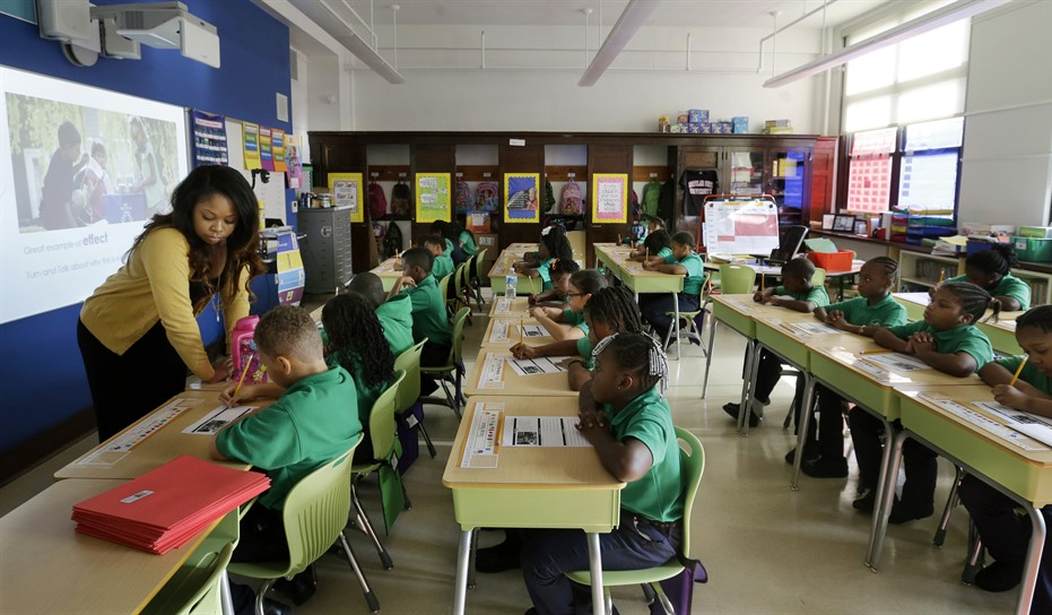“Fools rush in” is good advice in both poetry and policy. Alexander Pope coined the phrase while cautioning 18th Century writers to be careful with their criticism, a sentiment useful for modern day teachers unions.
Last week in Washington State, Gov. Jay Inslee allowed a bill to become law without his signature that resolves a dispute over whether charter schools can operate. Teachers unions had sued to shut down the independent public schools, and the state Supreme Court ruled in favor of the unions last fall.
But lawmakers saved the schools with a bill this year. More than 1,100 students attend charters in Washington state, according to Act Now for Washington Students, a campaign to save the schools. All of the charter schools were fully enrolled this year, with some forced to keep waiting lists for interested families.
Not even a week passed after Inslee’s decision and unions have rushed to say they will file another lawsuit against charter schools. One union official was quoted as saying their opposition is based in part on “the lack of public accountability” for charter schools.
Not so fast.
First, while teachers union members in Seattle walked off the job last September asking for more money, delaying the first day of district public schools for 53,000 children, publicly-funded charter schools opened. Taxpayers can decide which was the best use of their money, for unions to close schools and ask for more of it or for charters to fill classrooms.
Second, lawmakers can close charter schools if students fail. There is no similar provision for district schools. In 2015, the National Alliance of Public Charter Schools reports more than 200 charters closed across the U.S. due to low student performance or fiscal problems.
Recommended
Fortunately for students, there are more reasons to keep charter schools open than an ability to close them if needed.
A recent study of Florida charter school student success finds that charter school students were more likely to enter college and stay enrolled for at least two years. Furthermore, researchers found that these students earned $2,000 more annually between the ages of 23 and 25 than their peers, a 12 percent difference from comparable students. This study confirms findings of post-K-12 success from a
These positive impacts of attending a charter school go beyond the standard measures of achievement such as test scores and touch something even more important to all families: Helping a student achieve the American Dream.
Parents across the U.S., from all walks of life, have similar aspirations and goals for their children. Graduate high school. Succeed at whatever comes next, college or a job. To wit, a 2015 Fidelity Investments survey found that 71 percent of Millennial parents reported already saving for their child’s college education. The Millennial generation wants their children to succeed and knows well the pain of carrying college debt. The average debt levels for individuals aged 30-39 that carry loans ranges from $20,000 to $30,000, according to the Federal Reserve Bank of New York. Young parents have high expectations for their children, want them to succeed, and know the difficulty that can come from paying college loans.
Teachers unions should see the consensus moving in the opposite direction of their policy goals. Parents want the best for their children, and evidence is growing that finds long-term college and employment-related successes for children that attend charter schools.
It’s not too late for unions to heed more of Pope’s advice and reconsider their opposition: “But you, with pleasure own your errors past / And make each day a critic on the last.”

























Join the conversation as a VIP Member